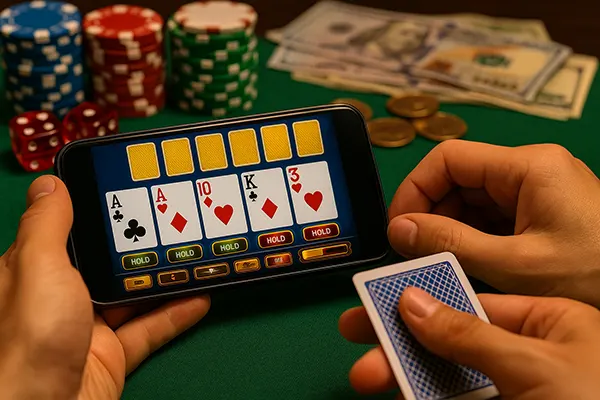Douglas Polk pulls a flush draw in a big pot (Analysis)

Douglas Polk is co-owner of The Lodge Card Club and an avid poker player. He regularly takes part in post-heads-up games against Daniel Negreanu. Douglas is also present at the poker table on The Lodge Live.
One recent session has impressed with his play. He was still clearly enjoying the gameplay, despite the setbacks. Douglas’s opponents were DQ, Big Tony and Andrew Nim, with the latter being the worst played by Polk.
Preflop analysis
For starters, it’s clearly Tony who’s screwing up, making two mistakes at once. Having pocket fives, he opens from UTG+1. The size of the open-raise is very large. The trick to making an open-raise is to steal the blind (sometimes you can get a call). Therefore, it must be as small as possible to prevent the big blind from gaining the protection of the pot.
Andrew Nim also makes a losing move. He opted to call when Tony opted to rake with a much larger range than required. Nim needs to ensure he has a proper range as his bank is in total trouble. On top of that, there are players behind Andrew who can play a squeeze, and that will put him out of the pot altogether.
Douglas Polk has outdone Andrew in terms of inappropriateness. He decided to call with a three and a deuce of diamonds from the katoff. Why he did that is unclear. Apparently he really came for the purpose of enjoying the process rather than fighting for the win.
DQ went into defence on the big blind, however, pointlessly. His opponents are going to have a stronger hand, while he’s sitting with a set of different suits. Such a hand will always be inferior to others, and DQ has no position.

Flop Analysis
DQ gets two pairs this time. Polk boasts a flush draw and Andrew has a top pair. DQ checks with his entire range (wide and weak), which makes sense. Tony also chooses to check, as the cont-bet is out of his reach with this spread. Andrew bets with the top pair as he needs to defend in the multi-bank anyway. Polk favours a call.
DQ calls a check-raise, though a check/call would be better. Nevertheless, he can continue to welsh-bet in case of any other card on the turn. Andrew decides to fold, as DQ’s range will be much stronger. So it turns out that Polk is best. His call after Andrew exits provides an opportunity to fight for the pot by collecting a flush.
Analysis on the turn
DQ makes a decent bet. So on the river he has to bet the size of the pot in case Douglas calls. Actually, Polk does call, which further improves his pot odds. The call turns out to be a plus with a decent profit, given the implosion. Having collected the flush, his winnings on the river could be considerably larger.
Analysis of the river
DQ bets on the river, which automatically increases the strength of every weak hand hit by Polk’s call on the turn. This is how his hand ends when the flush is closed. Douglas’s range provides an opportunity to deprive DQ of everything. So Polk decides to rake, which is the best option in this situation.



